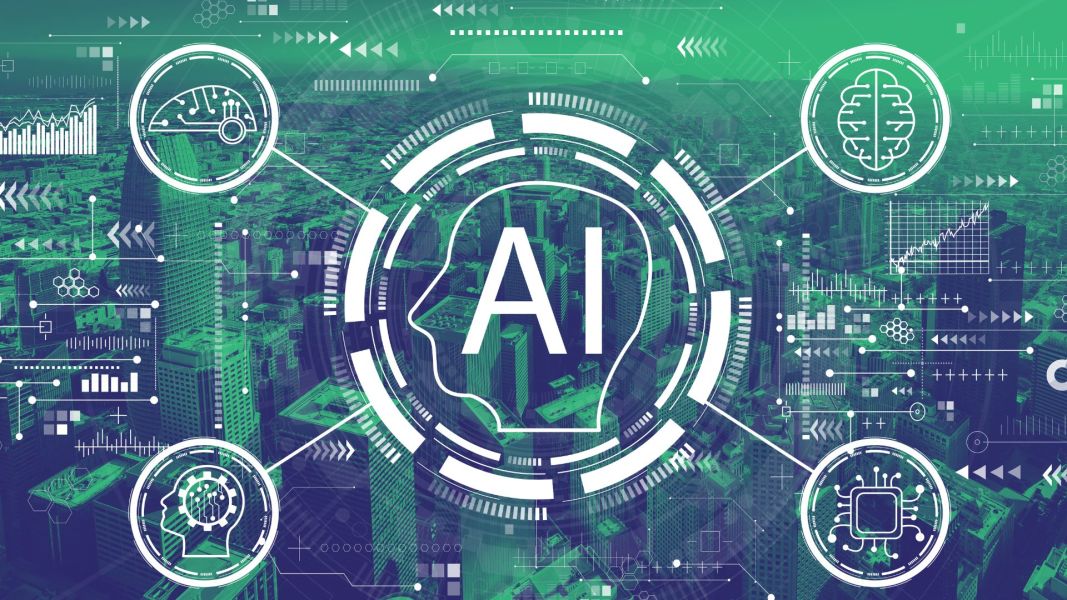Forex trading is a fast-paced space where traders see profits and losses in the blink of an eye. In such a space, technology can play a pivotal role in giving traders an edge. One of the most groundbreaking technological advancements is the integration of Artificial Intelligence (AI) into trading strategies. AI has the ability to analyze vast amounts of data swiftly and make informed decisions. As such, it can be a useful tool in transforming the way people approach forex trading.
In this article, we’ll dive into the role of Artificial Intelligence in forex trading strategies. We will explore how it works and its impact on traders.

Understanding Artificial Intelligence in Forex Trading
Artificial Intelligence is like a digital brain that learns from data. In forex specifically, it does this by identifying patterns and adapting to changing market conditions. AI algorithms can analyze historical data, market trends, and economic indicators to make predictions about future currency movements. Note that automated trading has existed for a long time now. However, the use of AI completely revolutionalizes algo-trading. Here is how AI contributes to improving the way people trade financial markets.
Machine Learning and Predictive Analytics
At the heart of AI in forex trading are machine learning algorithms. These algorithms learn from past market data to identify patterns and trends. In turn, this enables them to make predictions about future price movements. Traders can use these predictions to make more informed decisions and create effective trading strategies. In essence, AI in forex trading is like having a virtual analyst that continuously learns and evolves to enhance its forecasting capabilities.
Automated Trading and Algorithmic Strategies
Traditional algo trading systems use preset algorithms to execute trades in the market. AI, on the other hand, uses algorithms that are always evolving with market conditions and developments. New automated trading systems use AI algorithms to analyze market conditions and execute trades at optimal times. This automation eliminates human emotions from the trading equation. As such, they prevent impulsive decisions that can lead to losses.
Risk Management and Decision Support
AI not only assists in predicting market movements but also plays a crucial role in risk management. Advanced AI algorithms assess the risk associated with each trade, helping traders set appropriate stop-loss and take-profit levels. This risk management aspect is vital in preserving capital and ensuring that traders can withstand the inherent volatility of the forex market.
Market Sentiment Analysis
Understanding market sentiment is a key part of forex trading. AI tools can analyze news articles, social media, and other sources to gauge market sentiment. By incorporating sentiment analysis, traders can gain insights into how other market participants feel about the market. Consequently, this can help them make more informed trading decisions.
Real-time Data Analysis
Staying informed about market developments is very important. Many brokers now provide their clients with a way to receive live market updates on their platforms. For example, when you trade trade forex with Exness, you can receive live news and updates via Trading Central WebTV and FXStreet. AI can also help traders stay ahead of the rest by keeping them up to date with the latest market developments. AI excels in processing vast amounts of real-time data, providing traders with up-to-the-minute insights.
The challenge of Using AI in Trading
While AI has revolutionized forex trading, it’s essential to acknowledge the challenges and considerations associated with its use. Over-reliance on AI without a solid understanding of its underlying principles can lead to undesired results. Traders must also be aware of the limitations of AI algorithms. This can include things like the potential for overfitting historical data and the inability to predict unprecedented events.
Combining AI with Trader Expertise
While AI brings unprecedented capabilities to forex trading, the human touch remains crucial. Traders must use AI as a tool to enhance their decision-making, rather than relying solely on automated systems. Successful traders combine the insights provided by AI with their market knowledge and experience, creating a synergy that maximizes the effectiveness of their trading strategies.
Education and Training in AI for Traders
As AI becomes increasingly integrated into forex trading, there is a growing need for traders to understand how these technologies work. Educational programs and training courses on AI in trading are emerging to equip traders with the knowledge and skills necessary. By investing in education, traders can stay ahead of the curve and utilize the full potential of AI in their trading endeavours.
Closing Remarks
In conclusion, the role of Artificial Intelligence in forex trading strategies is transformative. AI brings a new level of algo-trading to the market. It provides traders with powerful tools for analysis, prediction, and automation. As technology continues to advance, traders who embrace AI and adapt their strategies accordingly are likely to have an edge over others. The key lies in striking a balance between the capabilities of AI and the experience and intuition of the human trader. This creates a harmonious partnership that maximizes the potential for success in the dynamic world of currency trading.

Founder Dinis Guarda
IntelligentHQ Your New Business Network.
IntelligentHQ is a Business network and an expert source for finance, capital markets and intelligence for thousands of global business professionals, startups, and companies.
We exist at the point of intersection between technology, social media, finance and innovation.
IntelligentHQ leverages innovation and scale of social digital technology, analytics, news, and distribution to create an unparalleled, full digital medium and social business networks spectrum.
IntelligentHQ is working hard, to become a trusted, and indispensable source of business news and analytics, within financial services and its associated supply chains and ecosystems












